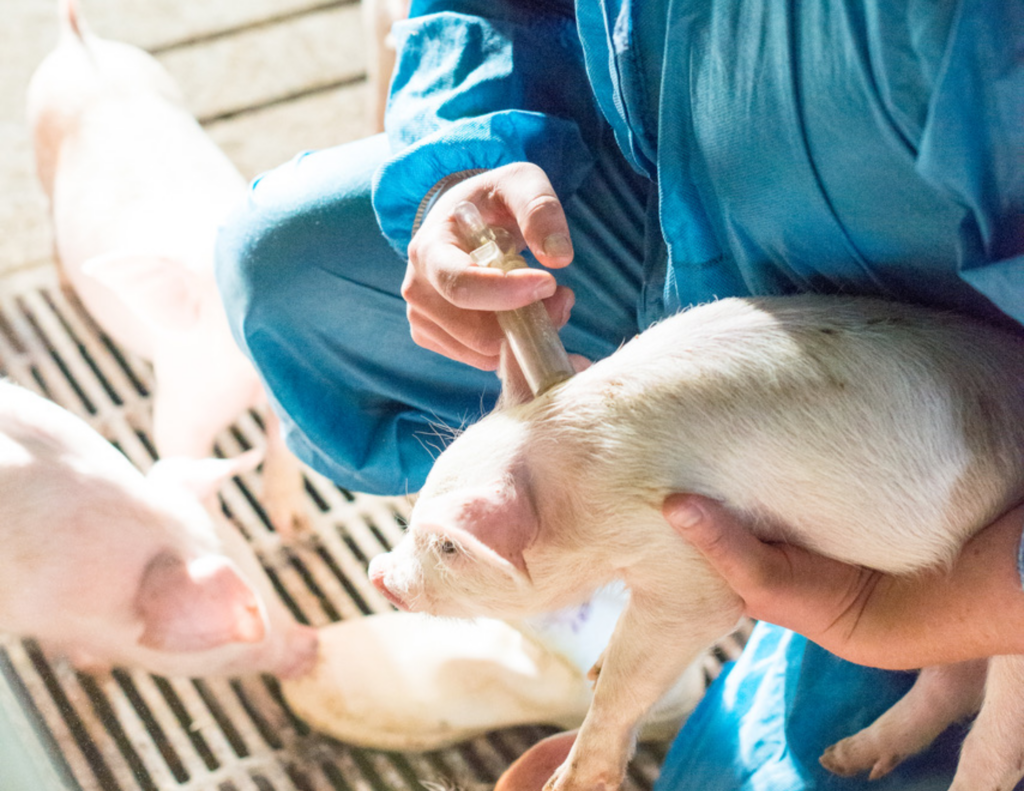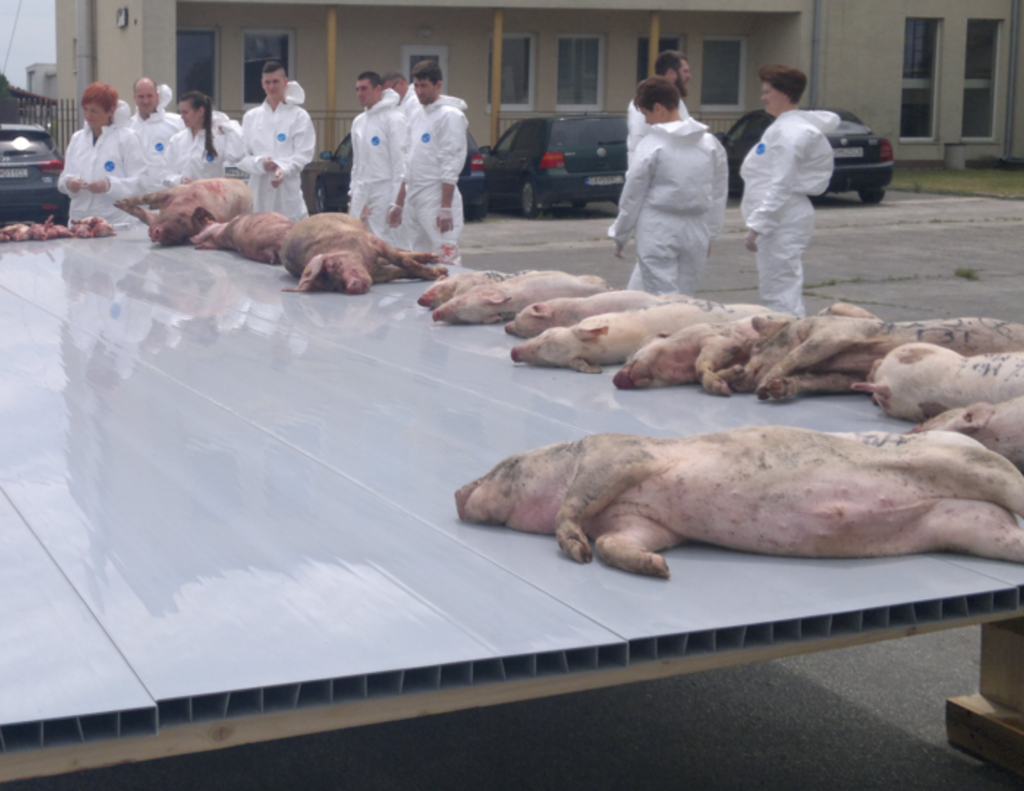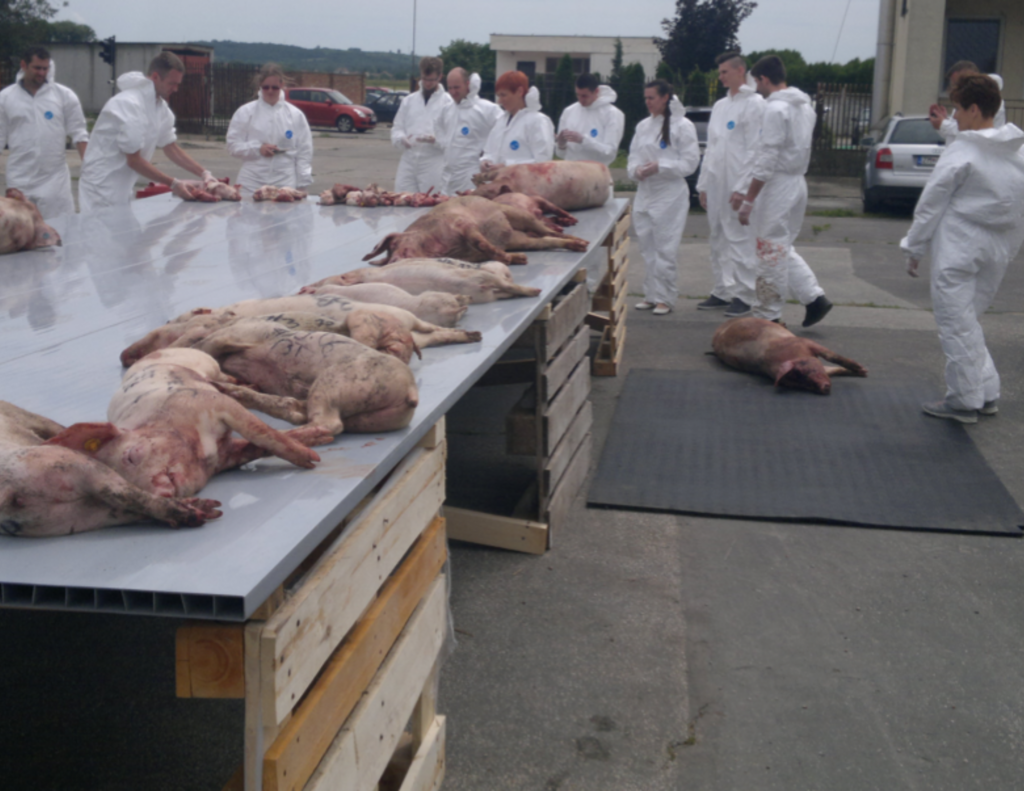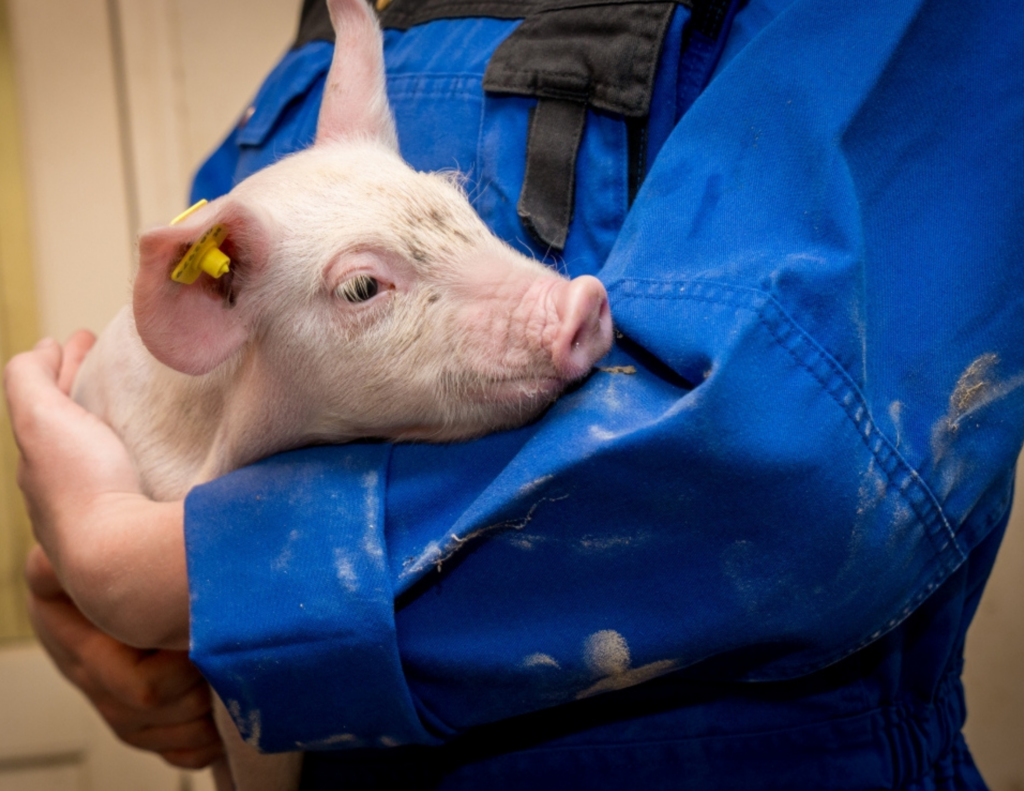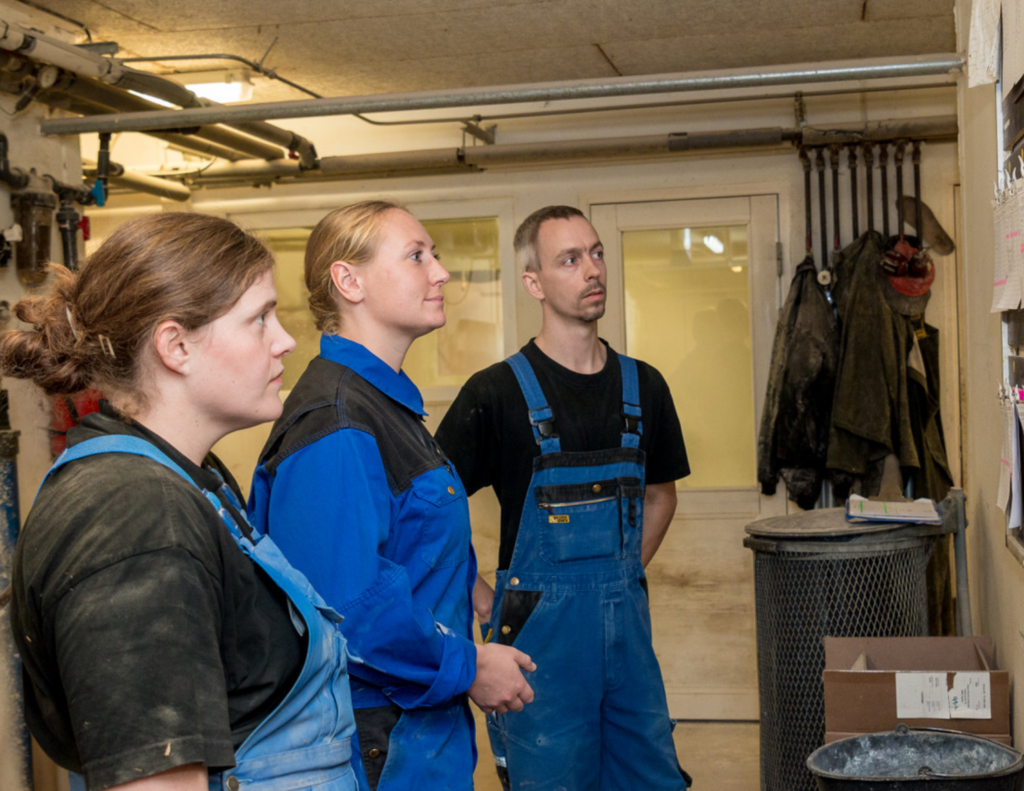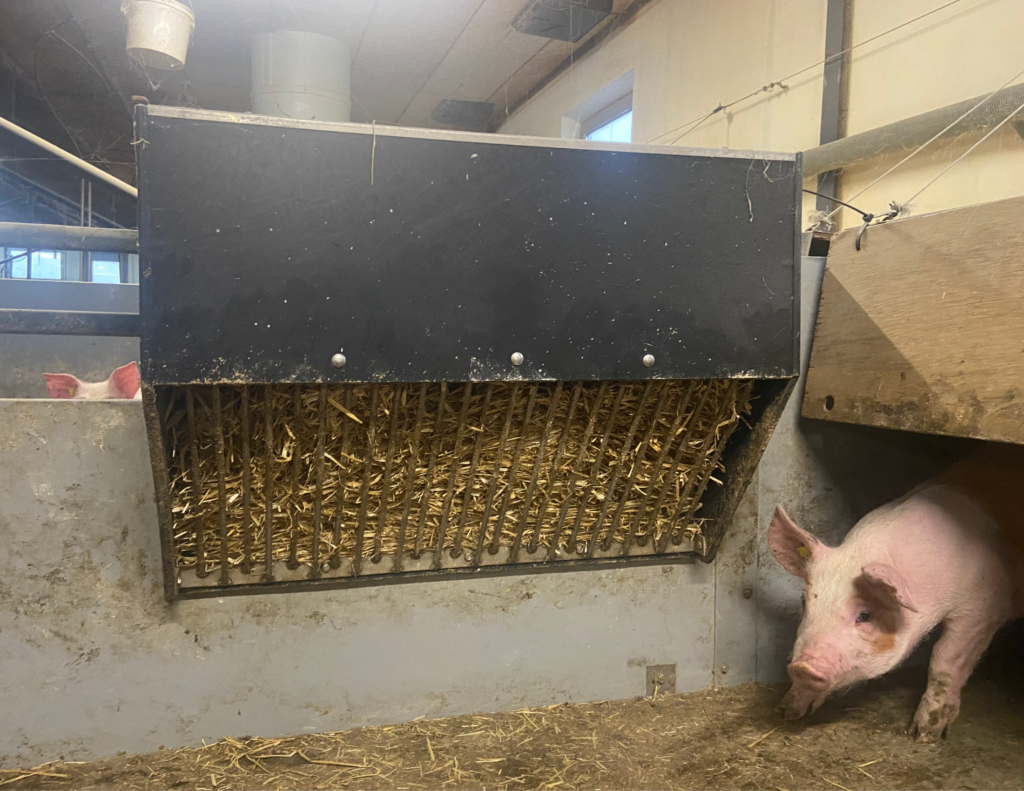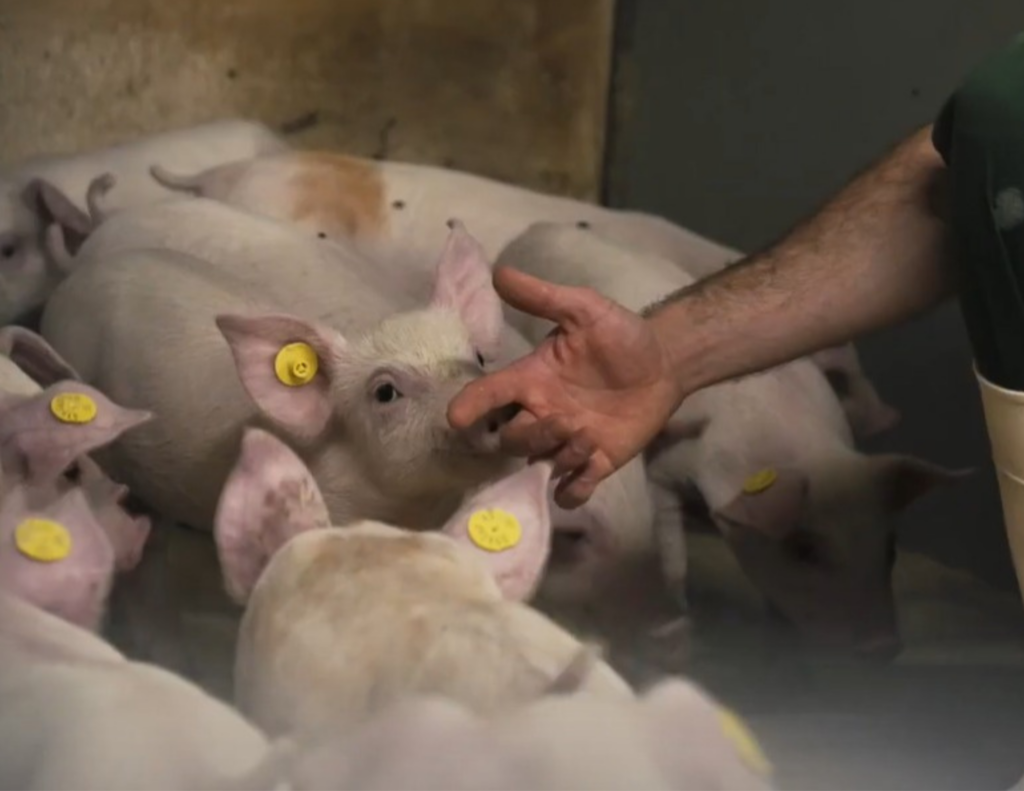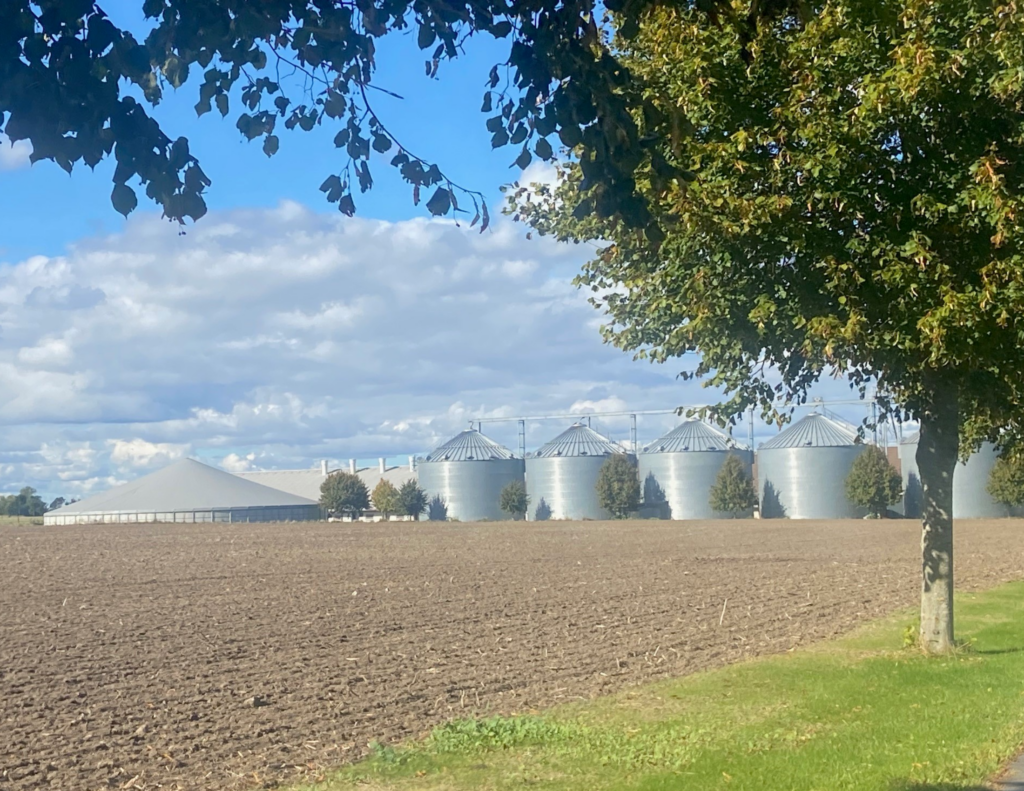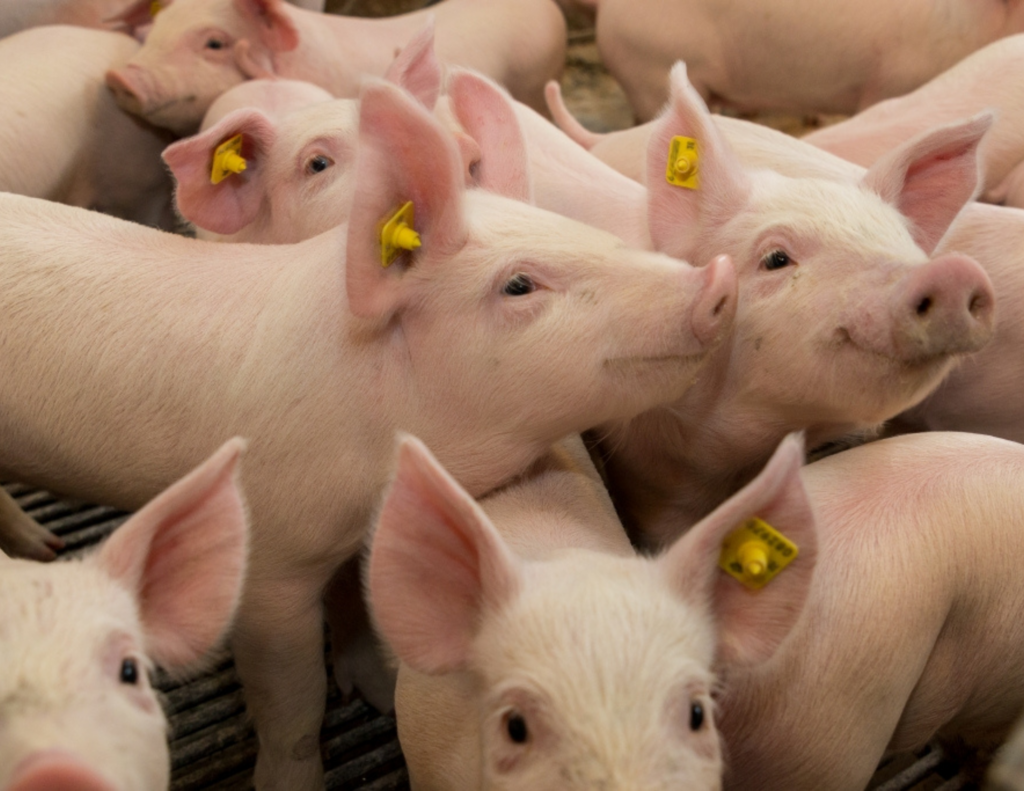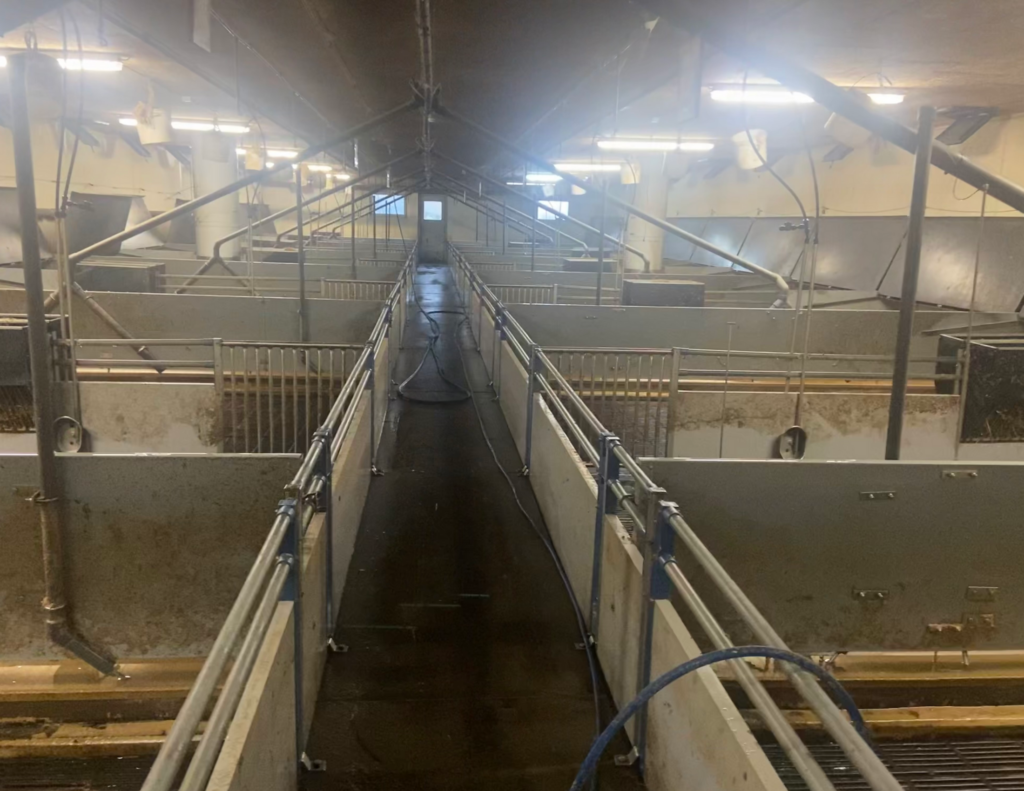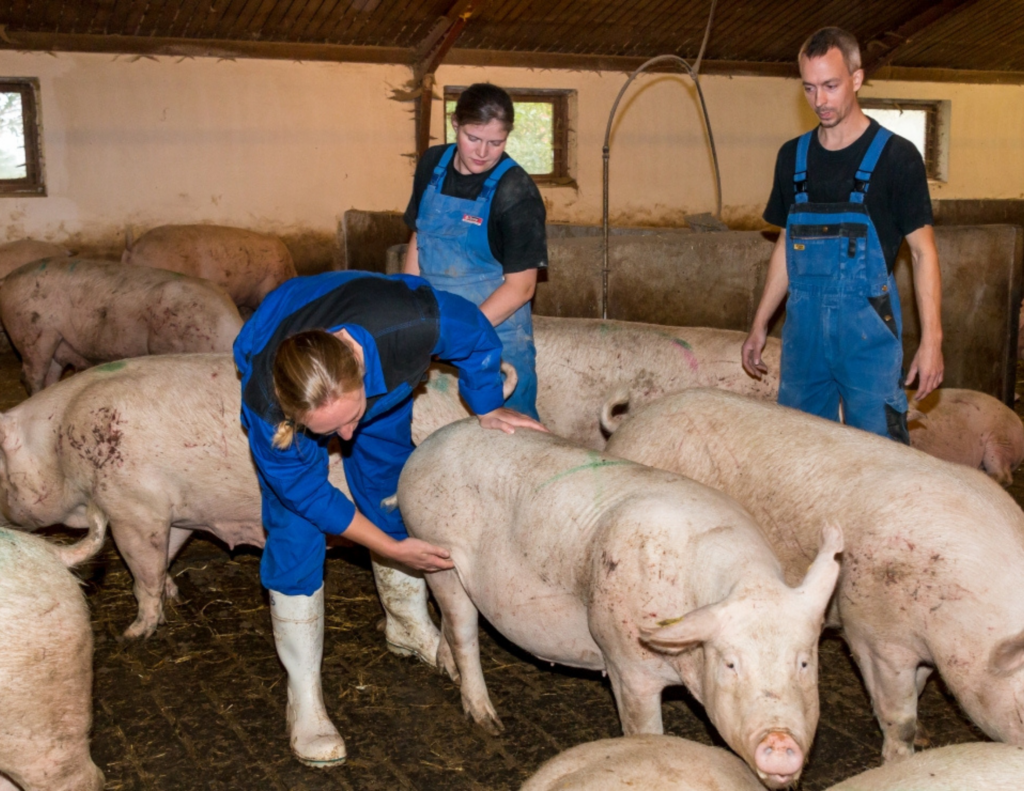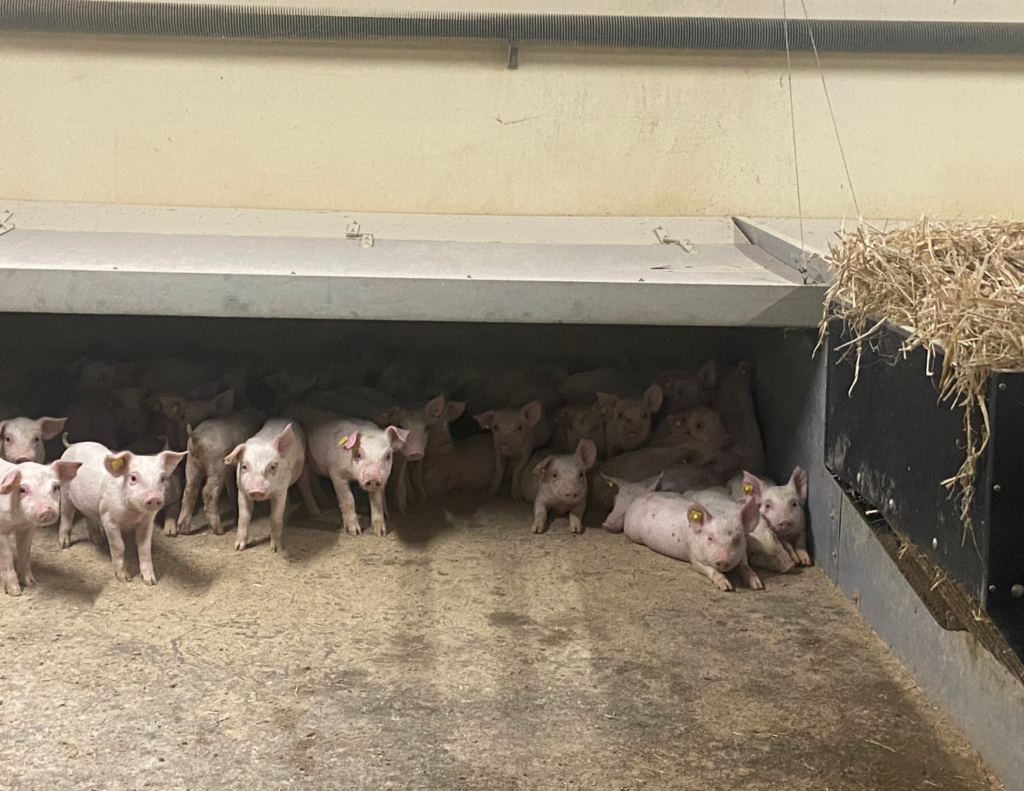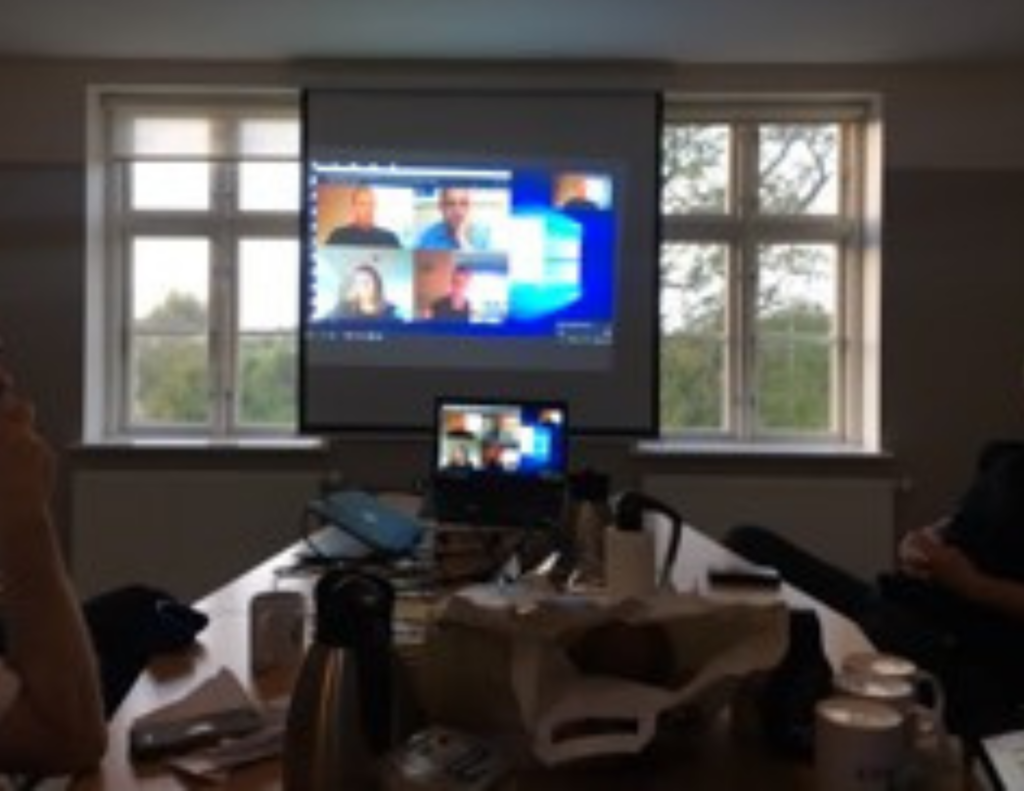We offer
Courses and services
OPTIMISING PRODUCTION IS MORE THAN JUST VISITING A FARM SITE. THIS IS REFLECTED IN OUR SERVICES WHICH YOU CAN READ MORE ABOUT HERE:
Courses & services
Besides advisory visits, Ø-Vet offers courses and services that are all designed to optimise your production.
The courses are designed to make you and your employees well-prepared for producing at the highest level – and is of course offered in both Danish and English.
Courses
Course in local anaesthesia at castration
In Ø-Vet we offer castration courses to our customers. The price will be tailored for each customer as the theoretical part can both be included in the medicine handling course but also be organised as a separate course on the farm where both the theoretical and practical parts are held.
Contact the office or your veterinarian if you are interested.
Intrauterine insemination
Ø-Vet offers a course in intrauterine insemination for both customers and other interested parties.
Intrauterine insemination is insemination directly in the uterus contrary to the traditional insemination at the cervix. For this exact reason, a course and subsequent approval by the Danish Veterinary and Food Administration are legally required.
The course is held as a one-day course on your farm and the day finishes with an exam.
The insemination method is approx. twice as fast as the traditional insemination. The time saved is partly found in heat control itself and partly in the insemination.
If you are interested, please contact veterinarian Andreas Birch: + 45 4021 6072 or ab@oevet.dk
Medicine handling course
Medicine handling course
We have experience in teaching courses concerning all animal species.
The medicine handling course consists of a theoretical part and a practical part.
- Theoretical part – 6 hours’ online course in either Danish or English
- Practical part – 2 hours on your own farm
The course can be held in both on Zealand and in Jutland.
When you have taken the course, you will, among other things, know something about
- Correct handling of medicine
- Administration of medicine
- How to avoid residues of medicine in, among other things, meat
- Resistance and how to avoid this
- Euthanising
- Local anaesthesia at castration
The course will concern production animals.
A course diploma will be signed by both the theory instructor and the herd veterinarian
Sign up by phone 55 50 08 85 or via this link.
Necropsy course
The participants will gain insight into the pig’s anatomical structure and understanding of the disease changes found in the pigs that we bring along. The most common diseases will be discussed – likewise, we will look at correct medication and vaccination.
On-farm training
On-farm training can be tailored exactly according to which knowledge you wish to give your employees, and the time frame is exactly as you wish. Maybe your employees need an updated medicine course tailored specifically to your consumption and needs. Perhaps the employees need a course in handling of sick sows and understanding mechanisms of disease in respect of some specific diseases.
We also teach farm courses concerning biosecurity. We can teach the course in both English and Danish.

Services
Hernia certificates/slaughter certificates
Do you send enough pigs to the slaughterhouse?
- In Ø-Vet, we are happy to issue hernia certificates for your slaughter pigs. A certificate can be issued for pigs with large hernias if there are no wounds on the hernia sac and the pig can move freely and without impediment.
A hernia certificate is valid for 7 days
- We are also happy to issue slaughter certificates for animals that cannot be transported under normal conditions where e.g. separation from other animals and soft flooring are enough to secure animal welfare during transport.
A slaughter certificate is valid for 48 hours.
Video consultations
Are you familiar with the situation where:
- Treatment of an animal was unsuccessful, and you are in doubt about the next steps?
- The disorder is something you are not quite used to seeing?
- You would like to get an assessment of cause of death?
- Perhaps your employee needs support in making decisions on treatment?
- Or on euthanising?
Video consultations can be done as regular, weekly calls during inspection of sick animals or in individual situations where you are in the pig pen and suddenly in doubt and need advice from a veterinarian.
The only this this requires is a phone with a camera, a fairly stable network connection – and preferably headphones (not required).
Call your veterinarian directly or the office to hear more about this or to immediately set up a video consultation.
Thermographic inspection
- Via our thermographic camera we can measure the temperature by using infrared radiation.
- You will receive an easily understandable report, so you know where to focus in order to optimise the energy on your farm.
- The thermographic visits are carried out as separate visits. Here we focus on taking the right photos and discussing the immediate results.
This tool has proven to be effective in connection with, among other things, reducing piglet mortality.
Biosecurity check
- Focus on biosecurity is important!
- Some of the typical challenges are delivery of pigs where foreign drivers get access to the ramp. That delivery trucks are not washed and disinfected before the next load or that the DAKA barrel is touched during the daily work with dead pigs.
- We offer a thorough check of various risk factors. The visit is finalised with a report containing specific measures for your farm.
Farm advisory boards/management boards
Ø-Vet has many years of experience in working with farm boards at various levels. Preconditions for the function of the advisory board are made:
- Professional sparring between owner and management
- Other eyes on production
- To improve the overall production economy
- To discuss and clarify future aspects
Analysis in Agrosoft / Cloudfarm
Too few live borns?
Too low gestation rate?
Do the young gilts not come into heat?
Or is there something else which is just not working right?
We analyse your data – whether you have Cloudfarm or Agrosoft. The analysis of your data results in a written report recommending which areas to focus on in your herd.
The herd veterinarian uses the report for the further diagnostic work, and often it must be followed up with blood tests, feed samples and especially reproduction slaughter checks.
At slaughter checks, reproductive organs from slaughtered sows are sent to the laboratory in Kjellerup which contributes to a unique way of looking inside the animals.
Sometimes the problem requires a visit from a reproduction expert either from Ø-Vet or one of our business partners.
No-obligation farm visit
Do you need new eyes on your herd?
We often visit new herds to make so-called ”second opinion” visits.
Send us an e-mail by clicking here.
Shortly describe the reason for your contact and what you wish to gain from our visit.
Then one of our veterinarians will contact you as soon as possible.
Project and development work
In Ø-Vet, we are very eager to innovate, and developing new concepts therefore has a high priority. New ideas often arise, and we are willing to spend time on testing them in practice.
We also participate in experiments – alone or in collaboration with other companies when the project makes sense to you as a producer.
Sometimes we do our own experiments. Among other things, we have examined housing of hernia pigs on various floorings, measuring of colostrum in piglets and occurrence of urinary tract infections among sows. Our own experiments are always highly relevant to our advice on the farms.
Welfare visit
There are many rules to keep track of. We would like to help you with this.
During a welfare visit we will inspect your farm together in order to ensure a high degree of animal welfare.
Among other things, focus will be on:
- Medicine registrations
- Design of hospital pens
- Handling of sick and injured animals
- Intact tails
Overall, we make sure that you fulfil the legal requirements so that you will be able to receive a control visit with peace of mind.
Furthermore, we believe that animal welfare can be seen on the bottom line.
